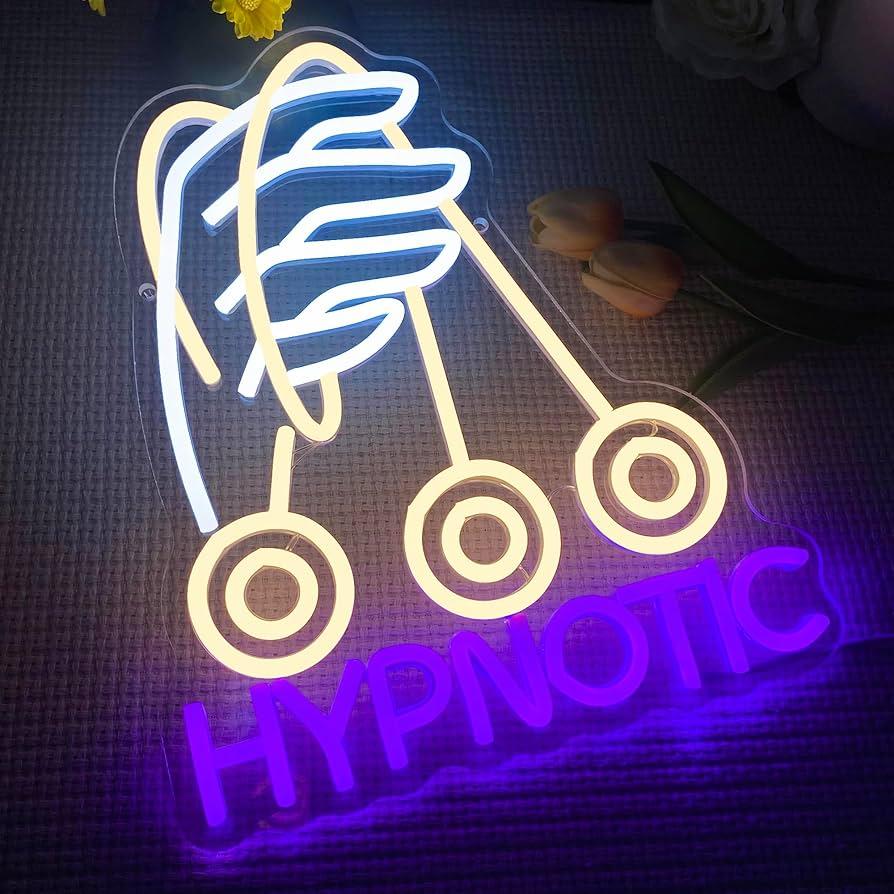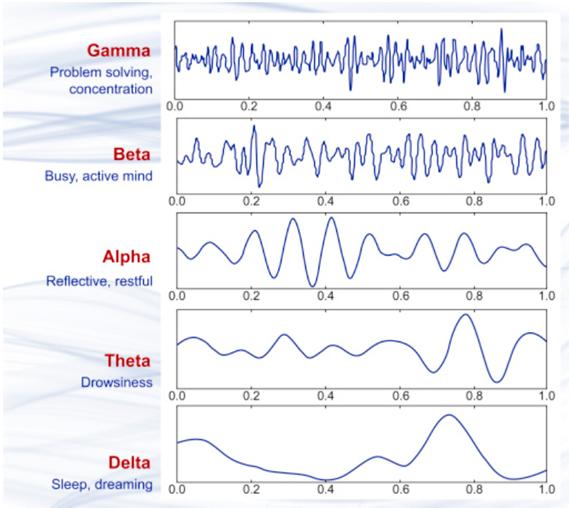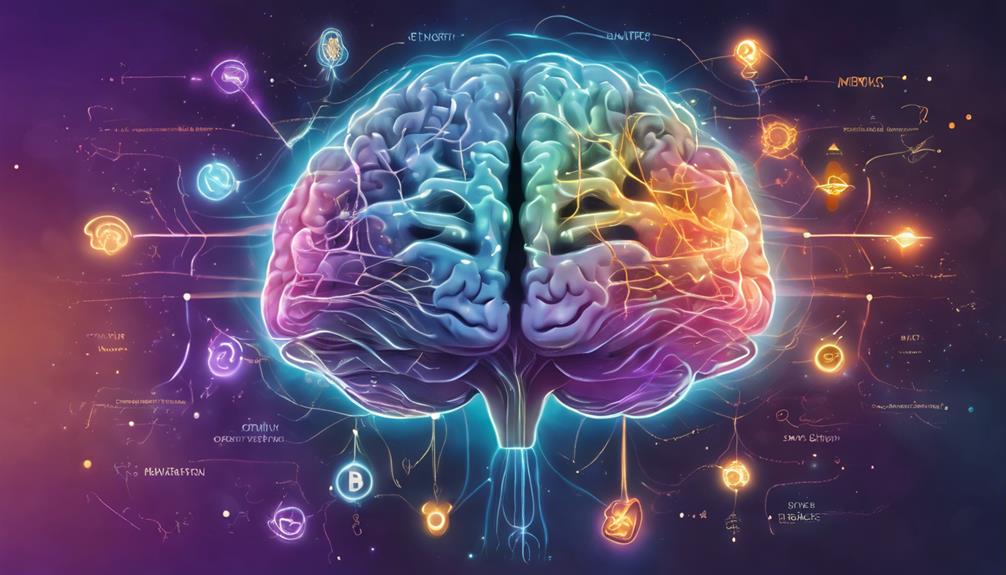Title: Unveiling the Trance: How to Know If You’ve Been Hypnotized In the hushed ambiance of a dimly lit room, a gentle voice guides you into a state of deep relaxation, where the boundaries of consciousness begin to blur. Hypnosis, often cloaked in mystery and surrounded by myths, has fascinated both skeptics and believers alike for centuries. But as you surrender to this intriguing state, how can you discern whether you’ve truly been hypnotized or simply daydreamed your way through the session? This article embarks on a journey into the realm of the subconscious, exploring the signs and sensations that may indicate you’ve ventured into hypnosis. From altered perceptions of time to heightened suggestibility, we will unravel the clues that can help you understand your experience. Join us as we delve into the intricacies of hypnosis and learn how to recognize when the soothing embrace of trance has taken hold.

Understanding the Subtle Signs of Hypnosis
Hypnosis can often feel like an elusive experience, blending seamlessly into a state of relaxation and focus. As one delves deeper into this altered state of consciousness, the subtle signs you were hypnotized may begin to manifest. You might notice a significant shift in your awareness; for instance, sounds around you may become muted, while your internal dialogue quiets, allowing for a more profound connection with your thoughts and feelings. This transformation can be signaled by:
- Physical Relaxation: A notable decrease in muscle tension, sometimes accompanied by a sensation of heaviness or lightness.
- Time Distortion: A perception that time has either slowed down or sped up, leaving you unsure of how long you’ve been in this state.
- Increased Suggestibility: An openness to ideas and suggestions that resonate deeply, making it easier to accept positive changes.
Another critical aspect of recognizing your hypnotic state involves the mental landscape you enter. You might find your imagination firing up vividly, creating scenarios in your mind that feel incredibly real. This heightened visualization is often accompanied by:
- Unconscious Movement: Slight twitches or gestures, as if your body is responding to suggestions without requiring conscious thought.
- Emotional Release: Sudden waves of emotions, such as laughter or tears, that bypass typical filters and defenses.
- Memory Access: A clarity or recollection of experiences and feelings that you may not typically access in your everyday state.

Exploring the Different Hypnotic States
Hypnosis is often depicted as a mystical state, but it encompasses various levels of consciousness that can be both intricate and enlightening. While in a hypnotic state, you may experience a sense of heightened focus and an altered perception of time. This can be accompanied by feelings of deep relaxation, where potential distractions fade away. Common indicators of a hypnotic state include:
- Deep Relaxation: A profound sense of calmness, often felt in the body
- Focused Attention: An ability to concentrate exclusively on the hypnotist’s voice or specific imagery
- Time Distortion: A perception that time has either sped up or slowed down
- Increased Suggestibility: A greater willingness to accept suggestions or ideas presented during the session
The hypnotic experience can vary significantly from person to person, sometimes even within the same individual across different sessions. Some might find themselves floating in a dream-like state, while others might feel fully aware and in control. To better understand these variances in hypnotic states, consider the following table:
| Hypnotic State | Description |
|---|---|
| Light Hypnosis | A relaxed but aware state, where some suggestions can be accepted. |
| Medium Hypnosis | A deeper level of trance, often leading to vivid imagery and emotional responses. |
| Deep Hypnosis | A profound trance state where full focus is on the hypnotist, often with little awareness of the environment. |
The Role of Conscious Awareness in Hypnosis
In the fascinating landscape of hypnosis, conscious awareness plays a pivotal role in determining whether an individual is truly hypnotized. Many people hold misconceptions about the nature of hypnosis, often viewing it as a state of unconsciousness or a form of mind control. However, hypnosis is far more nuanced; it encompasses a focused state of consciousness where the subject remains fully aware and in control. During this state, individuals often experience heightened receptivity to suggestions while simultaneously having the ability to critically analyze their surroundings. This duality is essential because it allows for creative exploration and personal insight, leading to transformative experiences.
Understanding this interplay between awareness and suggestibility can shed light on the sensations often reported by those who have undergone hypnosis. Here are some common indicators that one might recognize if they have been hypnotized:
- Deep relaxation: A feeling of physical and mental ease.
- Focused concentration: An ability to block out distractions around you.
- Enhanced imagination: Vivid mental imagery and daydream-like experiences.
- Altered perception of time: Hours may feel like minutes or vice versa.
These elements highlight that while your conscious mind is active, it is also open to exploring realms beyond your usual perception. The beauty of this state lies in its capacity to foster self-discovery, enabling individuals to tap into resources that may otherwise remain dormant. Therefore, recognizing these signs can empower you to understand and embrace the hypnotic experience, illuminating the path to personal development and healing.
Practical Tips for Identifying Your Hypnotic Experience
Identifying your hypnotic experience can be both intriguing and enlightening. To start, pay attention to your physical sensations during the session. Some people report feeling a deep sense of relaxation or heaviness in their limbs, while others notice a feeling of lightness or floating. Reflecting on these sensations can help you discern whether you’ve entered a hypnotic state. Additionally, consider your state of consciousness; it’s common to feel detached or in a dreamlike state where time seems to blur. Noticing shifts in your awareness might indicate a deeper level of hypnosis.
After a hypnosis session, engage in self-reflection to uncover more clues. Think about your degree of suggestibility—did you find yourself easily following directions or accepting suggestions? Take some notes on your memory and recall of the experience. It could be insightful to note if certain parts feel foggy or if particular suggestions resonate strongly with you after the session. You might create a simple table to summarize your experiences:
| Experience | Notes |
|---|---|
| Physical Sensations | Relaxation, heaviness, floating feeling |
| State of Consciousness | Detachment, dreamlike quality, altered perception of time |
| Suggestibility | Willingness to follow directions, acceptance of suggestions |
| Memory Recall | Foggy areas, strong resonances |
Q&A
Q&A: How Do You Know if You Have Been Hypnotized?
Q1: What is hypnosis, and how does it work?
A1: Hypnosis is a state of focused attention and heightened suggestibility, often accompanied by deep relaxation. In this state, a person may become more open to suggestions, allowing the mind to explore thoughts, memories, and sensations more freely. It’s akin to daydreaming but can be directed and purposeful, often facilitated by a trained hypnotist or self-hypnosis techniques.
Q2: What are some common experiences that might indicate you’ve been hypnotized?
A2: If you’ve experienced deep relaxation, a feeling of detachment from your body, or alterations in your perception of time, those could be signs of hypnosis. You might also find that you can recall specific thoughts or memories with extraordinary clarity, or on the flip side, you may have difficulty remembering what occurred during the session.
Q3: Is it normal to feel unsure about being hypnotized?
A3: Absolutely! Uncertainty is common, especially after the experience. Hypnosis doesn’t always manifest in dramatic ways like you see in movies. Many people report a subtle shift in awareness rather than an overwhelming sense of being “in a trance.” This ambiguity can lead to questions about whether the experience was genuine.
Q4: How can you tell if you were responsive to suggestions while hypnotized?
A4: One way to gauge your responsiveness is to reflect on any behavioral changes after the session. Did you find yourself acting differently, perhaps with reduced anxiety or increased motivation to take on specific tasks? Sometimes, individuals will notice changes in habits or mindset that can be traced back to suggestions given during hypnosis.
Q5: What if you remember everything that happened? Does that mean you weren’t hypnotized?
A5: Not necessarily! Many people can retain full awareness and memory throughout the hypnotic experience. The key factor is the shift in your state of consciousness; even if you remember everything, you may have still entered a state of focused attention that is characteristic of hypnosis.
Q6: Can you be hypnotized against your will?
A6: No, hypnosis requires a level of voluntary participation. A person must be willing to enter that relaxed state and receptive to suggestions. If you’ve ever avoided participating in a stage show where hypnotism is featured, that’s a clear indication of your autonomy regarding the process.
Q7: How do you know if it was effective or beneficial for you?
A7: Assess your feelings and reactions post-hypnosis. If you notice positive changes—like reduced stress, improved focus, or enhanced creativity—then the session was likely beneficial. However, if you feel uncomfortable or don’t observe any change, you might want to consider whether the process resonated with you or if another approach may be better suited to your needs.
Q8: What should you do if you’re curious about hypnosis and want to try it?
A8: Start by researching to find a certified and reputable hypnotist. Consider discussing your goals and questions with them before entering a session. Understanding what to expect can help reassure you and enhance your experience. Ultimately, maintaining an open mind and a healthy curiosity about the process will serve you well on this intriguing journey into your subconscious.
Closing Remarks
the landscape of hypnosis is both fascinating and intricate, woven with threads of psychology, suggestion, and self-awareness. Understanding whether you have been hypnotized requires a journey inward, a careful examination of your thoughts, emotions, and sensations. As you navigate this unique state of consciousness, remember that each individual’s experience is distinct and can vary widely. If you find yourself pondering the moments when time seemed to bend or when your mind felt deeply absorbed, it may indeed signify a brush with hypnotic suggestion. Engage with your memories and sensations, and trust your instincts—they are your best guides in this exploration. Ultimately, whether through therapeutic sessions or casual curiosity, being attuned to your experiences can deepen your understanding of both hypnosis and yourself. So, as you reflect on the telling signs of hypnosis, embrace the wonder of the mind’s capabilities and remain open to the intriguing possibilities that lie ahead. After all, the journey into the depths of your consciousness is just as compelling as the destination.
Dr. John Renoldson is a distinguished professor of Clinical Research Hypnotherapy He holds a PhD in Clinical Psychology and specializes in hypnotherapy and scientific research to enhance therapeutic outcomes. Dr. Renoldson has authored numerous peer-reviewed articles on the efficacy of hypnosis in treating conditions.




